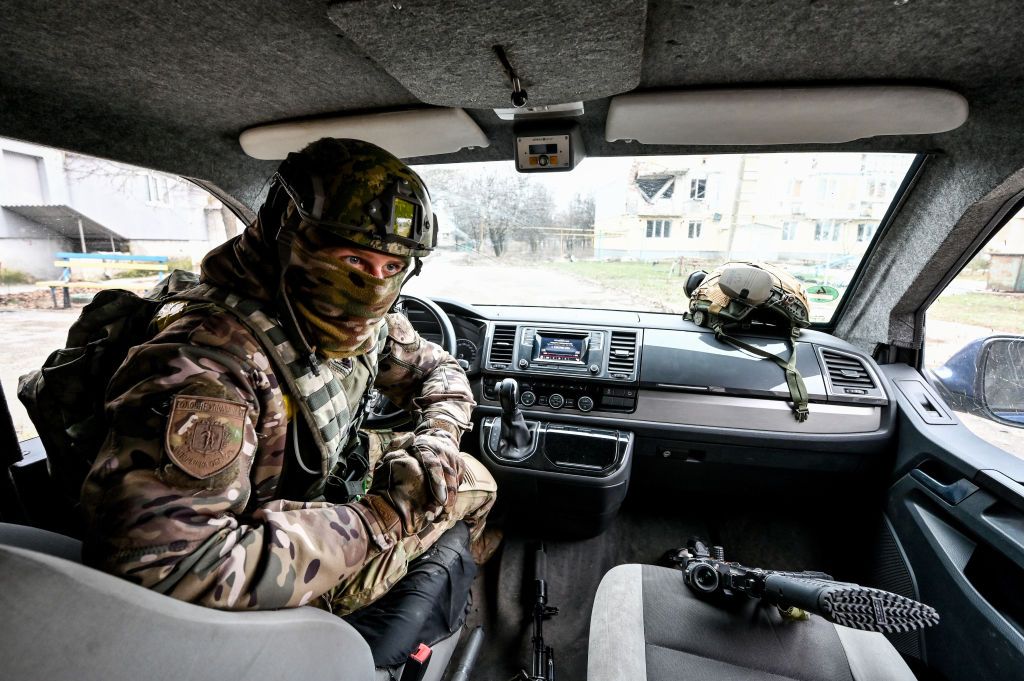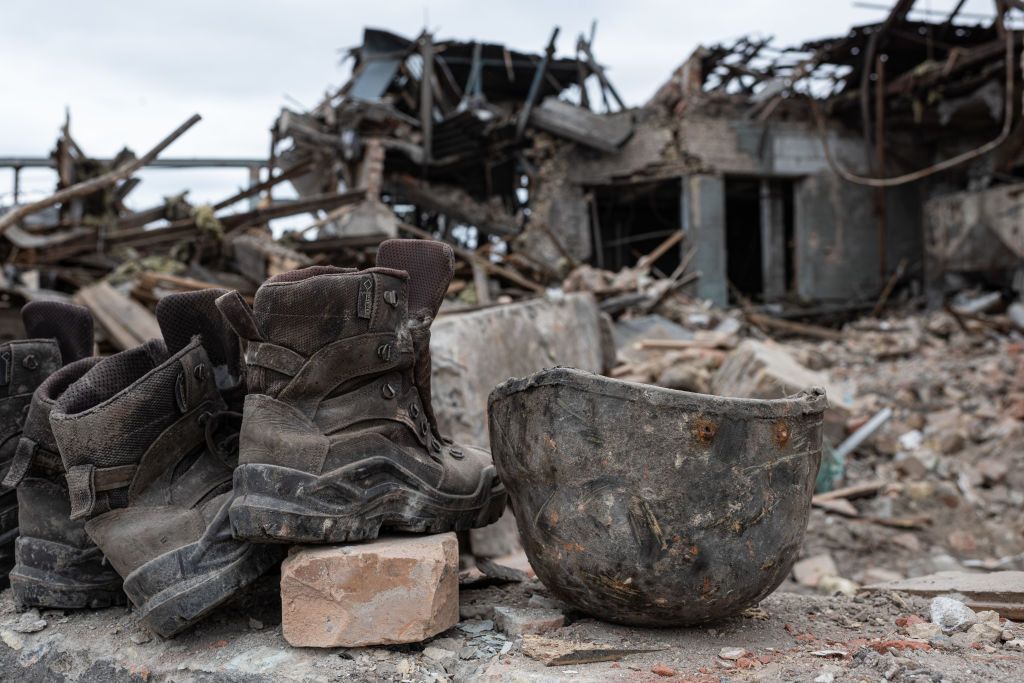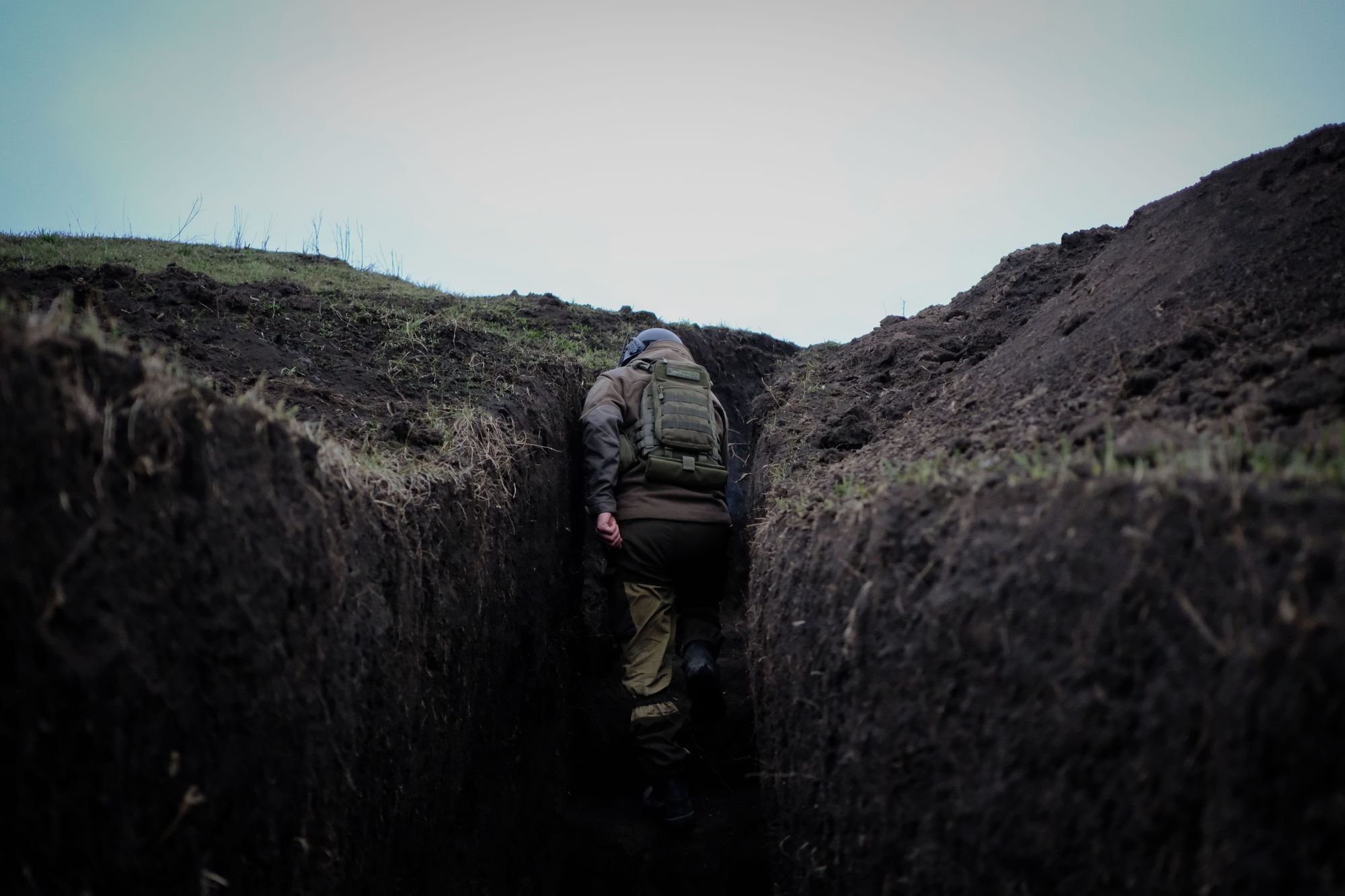Key developments on April 19:
- "Complex measures" of Ukraine's planned counteroffensive are "already underway" in the east, Defense Ministry says
- Patriot air defense systems arrive in Ukraine
- NYT: 'Surge' in electronic components sent to Russia via Armenia, Kazakhstan
- Commander: Embattled Bakhmut still stands

Deputy Defense Minister Hanna Maliar said that "complex measures" of Ukraine’s planned counteroffensive are "already underway" in the east of the country.
The planned counteroffensive "involves a vast and complex set of actions and measures” conducted by Ukraine’s military, which includes preparations for “a range of defensive and offensive actions," Maliar said on national television on April 19.
She hasn’t specified dates, actions, or locations of these measures but said that "the plan was finally chosen in such a way that the enemy cannot react."
Earlier on April 12, the Washington Post reported that Ukraine's upcoming counteroffensive had been delayed due to weather, slow equipment deliveries, and an insufficient amount of ammunition, among other reasons.
The recent U.S. intelligence document leaks delve into details about the capabilities of Ukraine’s military and alleged weaknesses of air defense, which could make Ukrainians alter counteroffensive strategies.
The long-awaited counteroffensive is seen as a critical point to liberate Russian-occupied territories, and failure to do so could push Kyiv to negotiate with Moscow.
 Kyiv IndependentAlexander Query
Kyiv IndependentAlexander Query
Western air defense systems arrive in Ukraine
Ukraine has received Patriot air defense systems from the U.S. and the Netherlands, First Deputy Defense Minister Oleksandr Pavliuk said on April 19.
Pavliuk also confirmed the delivery of the Patriot battery from Germany, which Berlin had reported a day earlier.
American-made Patriot surface-to-air missile systems will improve Ukraine’s capability to defend against Russian cruise missiles and drones, Pavliuk said.
The system is the most advanced air defense hardware in the U.S. arsenal that Kyiv has been long pleading for.
Germany also delivered the second of the four pledged IRIS-T anti-aircraft missile systems to Ukraine "around April 16," Der Spiegel reported on April 19, citing its sources.
The other two IRIS-T systems are expected to be sent by early 2024, though they have yet to be produced.
The first IRIS-T, delivered last October, proved itself well during the winter, protecting Kyiv's civilian infrastructure from regular Russian missile strikes and drone attacks.
Kyiv Mayor Vitalii Klitschko, cited by Der Spiegel, said the IRIS-T system saved "thousands of lives" during Russian strikes targeting Ukraine’s capital.
Meanwhile, Ukraine has requested more IRIS-T systems from Germany, as they can hit targets at an altitude of up to 20 kilometers and a distance of up to 40 kilometers.
Kyiv is likely to make an urgent plea to its allies for more air defense missiles at the Ukraine Defense Contact Group, known as Ramstein Summit, on April 21, the Financial Times reported on April 19.
Ukraine's efforts to defend the population against Russia's relentless mass missile and drone strikes since mid-October of 2022 have "systematically depleted Ukraine's stockpiles."
 Kyiv IndependentIllia Ponomarenko
Kyiv IndependentIllia Ponomarenko
NYT: 'Surge' in electronic components sent to Russia via Armenia, Kazakhstan
Senior U.S. and EU tax and trade officials noticed a "surge" in chips and other electronic components sent to Russia via Armenia, Kazakhstan, and other countries, the New York Times reported on April 18.
The chips and other components were "deemed as critical to the development of weapons, including Russian cruise missiles that have struck Ukraine," according to the report.
Heavy sanctions were imposed on Russia following the start of the full-scale invasion of Ukraine to prevent such technology from being used on the battlefield.
However, electronic component sales through unofficial channels and Russian-allied nations make the official sale figures much lower than the total number of technology sent to Russia.
In late January 2023, a Dutch investigation revealed that millions of microchips made by Dutch companies had reportedly ended up in Russia since Feb. 24, 2022.
The investigation showed a “clear pattern” of a small group of Chinese companies obtaining Dutch chips and exporting them to Russia month after month.
On April 14, Reuters reported that Ukraine was allegedly finding more electronic components originating from China in Russian weapons recovered on the battlefield, citing a senior adviser to President Volodymyr Zelensky's office.
 Kyiv IndependentFrancis Farrell
Kyiv IndependentFrancis Farrell
‘Bakhmut stands,’ Land Forces chief says
Russia concentrates "the largest number of forces" in Bakhmut in eastern Donetsk Oblast, but Ukrainian defenders "hold back the enemy onslaught," Colonel General Oleksandr Syrskyi, commander of Ukraine's Land Forces, said on April 19.
Bakhmut remains "the epicenter" of the Russian offensive as "dynamic" fighting is ongoing with "significant" losses suffered by Russian forces in the area, Syrskyi said in a Telegram post.
The Lyman, Bakhmut, Avdiivka, and Marinka sectors in Donetsk Oblast remain Russia's top assault priorities, the General Staff of Ukraine’s Armed Forces said in its evening update on April 19. Ukraine’s military repelled over 40 Russian attacks in the area on April 19, according to the report.
The battle of Bakhmut has been raging for the past nine months as Russia aims to seize the entirety of Donetsk Oblast, around half of which it currently occupies. Both sides have sustained heavy casualties in the area.
As of mid-April, Ukrainian forces continue to hold the west of the railway line in Bakhmut, while Russian forces led by the Wagner Group have reportedly taken the administrative center.
The U.K. Defense Ministry wrote in its April 18 intelligence update that Russia had likely reduced troop numbers around the occupied city of Donetsk, diverting resources toward Bakhmut.
 Kyiv IndependentAnastasiia Lapatina
Kyiv IndependentAnastasiia Lapatina
#Russia #Ukraine
Comments
No comments yet. Be the first to react!